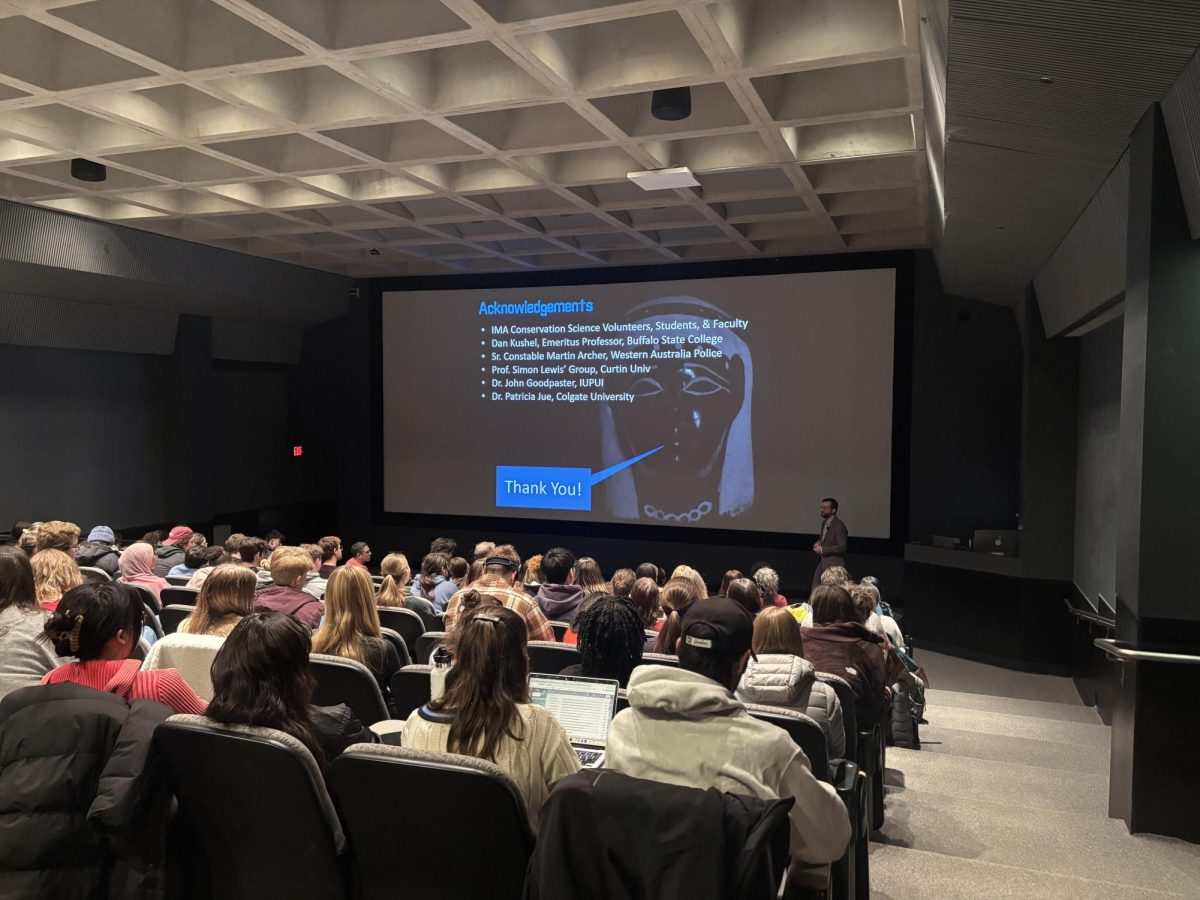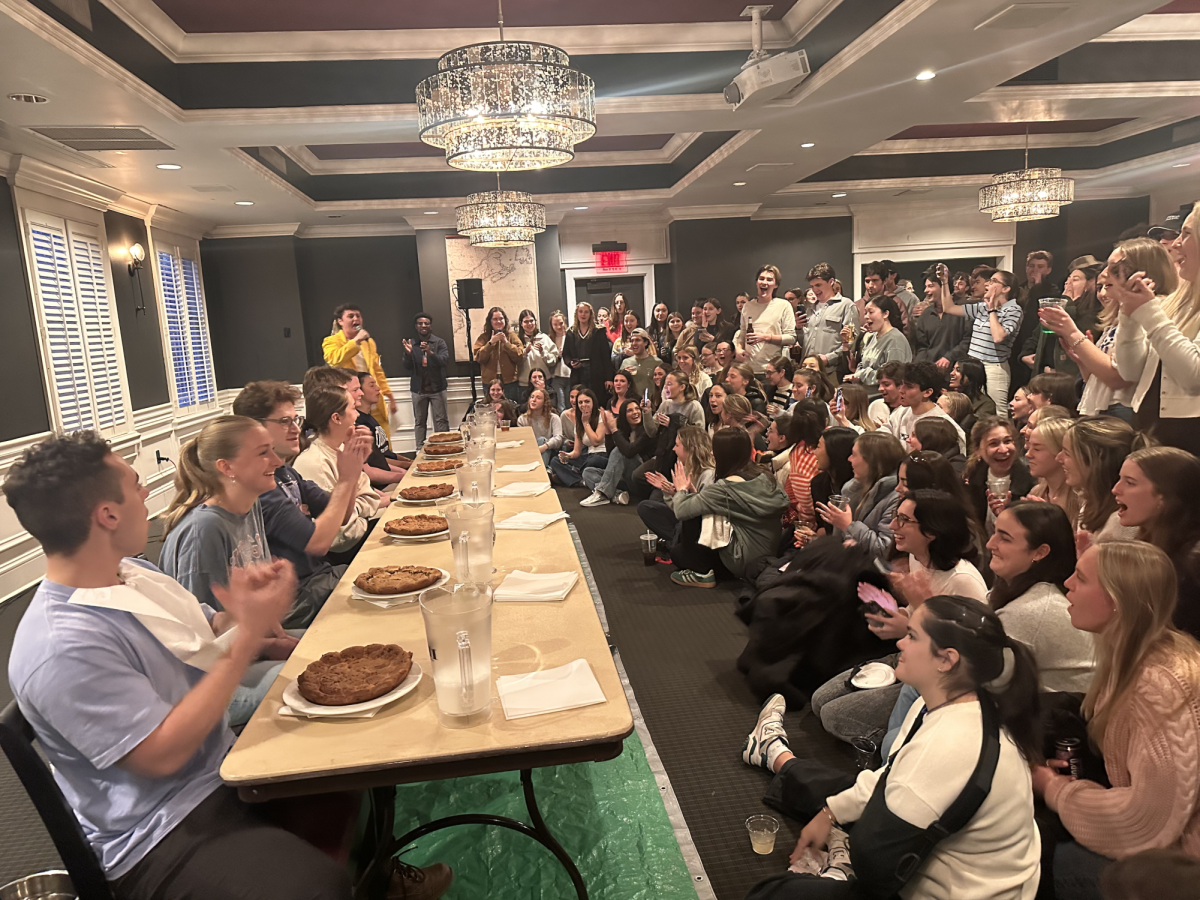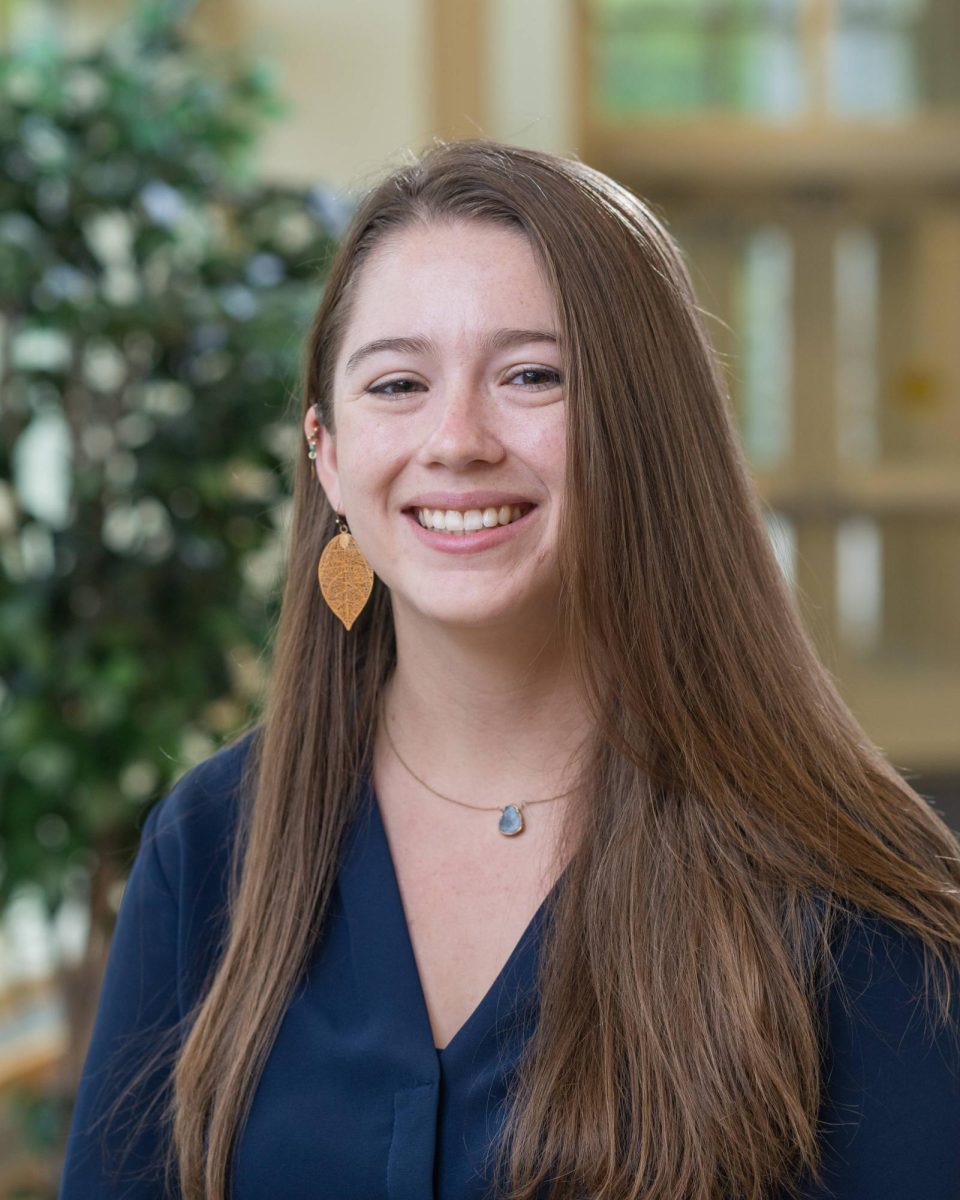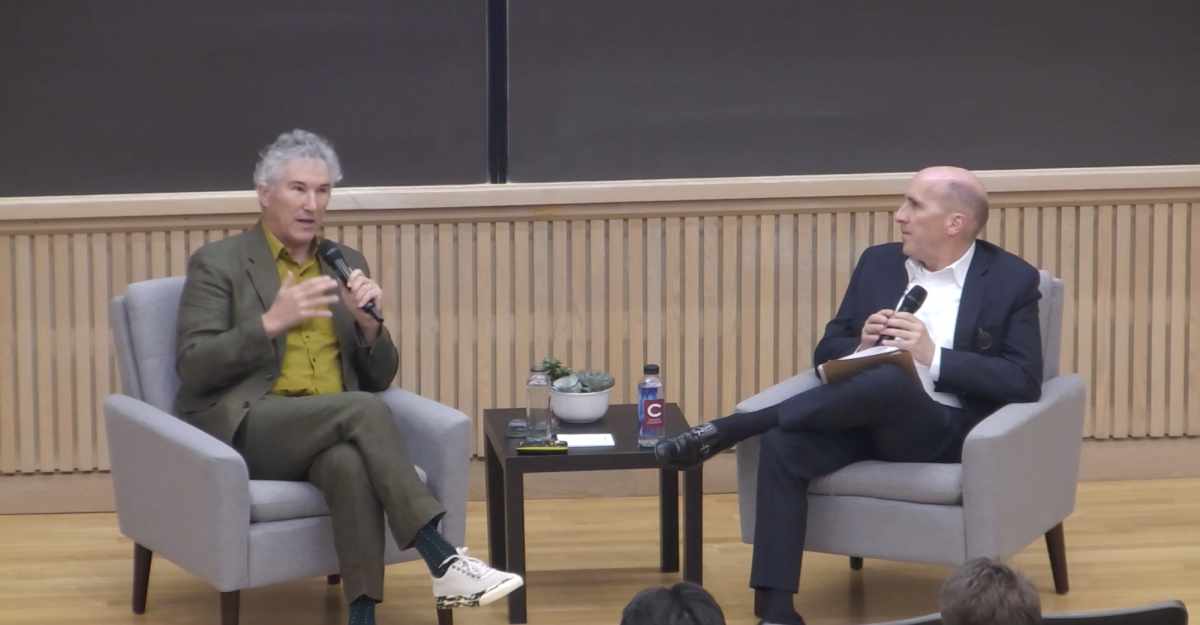The Colgate University Live Music Collective sponsored a lively jazz performance Thursday, Nov. 7 in Case-Geyer Library. Ken Filiano — bassist, composer, improviser and teacher — and Andrea Wolper — vocalist, composer and arranger — used avant-garde innovation to energize their music. Filiano and Wolper’s musical connection extends beyond the stage: the duo married in 2003 and live in Brooklyn, N.Y. Completing each other, Filiano and Wolper filled the room with original and spontaneous jazz.
Committed to musical experiences, students and faculty in the Live Music Collective started the Jazz in the Library series back in 2022. Associate University Librarian and Director of Research and Scholarly Initiatives Joshua Finnell described the scouting process for bands as student-driven.
“Many of the artists we’ve brought to campus the last few years came as recommendations from students, Professor of English Michael Coyle and Kara Rusch,” Finnell said. “Their radio show on WRCU, ‘Slim & Him,’ has been a catalyst for showcasing new and emergent jazz musicians on our campus and surrounding community. [Wolper] and [Filiano] came highly recommended from [Coyle] and [Rusch].”
Filiano and Wolper brought jazz to the usually quiet space, diffusing intense studying with cheerful and sweet notes. Finnell emphasizes the importance of creating moments of pause.
“We purposefully host these shows on the fifth floor of the library to allow students an opportunity to take a brief respite from studying in Case to enjoy live music or merely watch a song or two as they enter the building en route to their study carrel,” Finnell said. “Our hope is to create a serendipitous musical experience in the regular rhythms of life on campus. Of course, we also hope students become fans of jazz.”
Praised for charting her own path, Wolper intertwines creative tastes with beautiful vocals. Wolper gave students and faculty a front-row seat to the power of musical storytelling and improvisatory vocal jazz. After a particularly upbeat performance, Wolper explained the music’s backstory.
“The song was written by Bob Casanova,” Wolper said. “When I heard this song, I knew I had to sing it. But his version is very different from this one. It was very bluesy and ballad-y — and it was perfection. I decided I had to find another way in and write a different arrangement.”
Finnell resonated with Wolper’s unique style and encouraged students to check out the magic-making for themselves.
“If you haven’t heard [Wolper] sing live, you should,” Finnell said.
Described as a “creative virtuoso,” Filiano intertwines traditions of double bass with avant-garde techniques. His imagination is palpable.
“The gift that we all have as human beings, besides being able to count, to talk, to put language together, is to think abstractly,” Filiano said. “And part of abstract thinking is to be able to hold two, three, four or 27 diametrically opposed ideas together. How do we balance that? Sometimes that is humorous. Sometimes that is tragedy.”
Filiano complimented Wolper’s ability to transform Cassanova’s original song with an older, bluesy style into something entirely new.
“She opened my mind when we did this,” Filiano said. “This is the beauty of being a human being, that we have abstraction, mental expansion.”
“I opened your mind?” Wolper humorously responded.
Filiano and Wolper not only experimented with different lyrics but sometimes removed lyrics altogether. The duo brought up Brian Stark, visiting assistant professor of music, to perform a fun and unusual piece written by Jay Clayton.
“One of the things about music is you can communicate without words, but you don’t necessarily remove the emotions,” Filiano said. “There is an instantaneous connection emotionally without getting caught in the specifics of rhetoric and so on.”
Despite it being his first time seeing the song, Stark’s saxophone beautifully integrated with the instrumental and improvisational music. Filiano complimented Stark for tuning right in.
“Scientists in Switzerland are figuring out how to define that consciousness is cosmically universal,” Filiano said. “Therefore, we really don’t need words. We just need sound with the vibrations. I mean, we were tuned right in. So thank you.”













